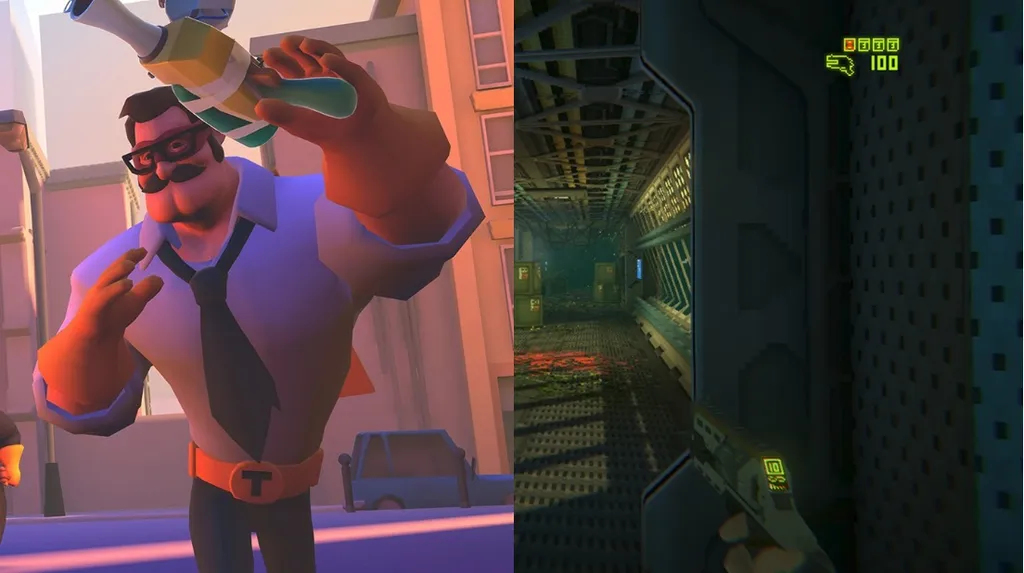Oculus Go is a decent bit of VR kit for $199, but it’s no secret that the headset is a little short on ‘full’ gaming experiences. Whereas Go’s bigger brother, Oculus Rift, is populated with blockbusters like Lone Echo and Superhot VR, Facebook’s first standalone headset is aimed more at casual users, with its limited power and tracking making it a challenge to bring popular genres like first-person shooters to the headset.
But two recent releases prove it can be done.
Last week saw the launch of Theta Legion and Slightly Heroes on Oculus Go. The former is a short single-player tribute to classic first-person shooters like Doom and Quake, whereas the latter is an arena-based multiplayer hero shooter akin to something like Overwatch. Both feature smooth locomotion and, you know what? Both play pretty darn well.
In the case of Theta Legion, you navigate a series of narrow hallways and rooms, taking out drones and aliens that have been gloriously designed to resemble the early 2D imagery of the games that inspired it. It’s just a handful of levels that won’t take you long to see through, but it’s free and using the Go’s motion controller to aim guns and reload feels great. I missed the ability to lean away from incoming fire like I would on PC VR (in fact I would instinctively dodge and feel a little ill for it) but the overall package gets close enough to the full FPS experience to be worth your time.
Slightly Heroes, though, is arguably the more impressive of the two. Not only does it offer the full multiplayer deathmatch experience in VR, but it holds up incredibly well next to the Oculus Rift and HTC Vive versions of the game that also launched last week. It consists of short matches in small levels, but offers a robust progression system and some of the best visuals on the platform. Twisting the Go controller to quickly spin around works well and, even though I couldn’t bring a gun up to my line of sight for true aiming, I became a natural with the Go controller in no time.
Admittedly both games do struggle with the uneasy navigation afforded by Go’s touchpad (which was a major reason that we didn’t take so well to last month’s big Go release, Covert), but what’s been achieved with both remains incredibly impressive.
What Go could use now is a bigger game that draws on these learnings, perhaps tying into Oculus’ existing suite of shooter games like Damaged Core or Arktika.1. As it stands, these games paint a positive picture for Go in 2019, especially if Oculus Quest’s arrival encourages more developers to further downscale their projects to fit the platform. If you’re a Go owner in search of more ‘hardcore’ gaming experiences, don’t pass them up.


























